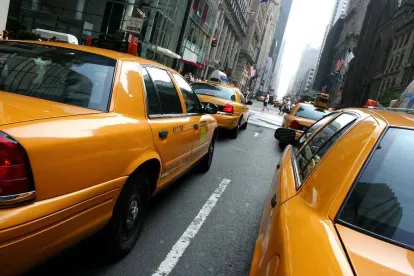The Employment Appeal Tribunal recently handed down its judgment in Augustine v Data Cars Ltd. The case concerned a taxi driver who alleged that his pay had fallen below the National Minimum Wage, but the arguments upheld by the EAT have far wider significance than the cabbing industry – they extend to any employer with employees on or about the NMW.
As a taxi driver, Augustine incurred certain costs related to his job. He had to maintain a specific type of insurance to operate, Data Cars required that he pay them a circuit fee in return for the allocation of work to him and he was contractually obliged to keep his car clean. Since they were either legally or contractually necessary for the performance of his duties, those costs were all found by the Employment Tribunal to reduce Augustine’s pay for NMW purposes, as was the cost of the fuel used by him while operating. These were not matters subject to appeal. As a taxi driver, Augustine was obviously required to have a vehicle. Initially, he used his own leased vehicle, but after a few weeks he rented one instead. He also chose to pay for a uniform from Data Cars which it required as a condition of allocating him more upmarket and lucrative jobs. Among a wide range of other complaints, Mr Augustine contended that all these payments made by him were reductions for NMW purposes under Regulations 12 and 13 of the National Minimum Wage Regulations 2015, so bringing his income below that minimum level.
The Employment Tribunal found that neither the cost of the vehicle nor the cost of the uniform reduced NMW pay. That was on the basis that (1) Augustine was not required to rent a vehicle to do his job – he could have used his own, owned or leased; and (2) he was not required to pay for a uniform; rather this was entirely optional, more of the nature of a voluntary investment in himself if he wanted to access the better-paid work, but entirely superfluous if he did not. Neither was either contractually or legally required in order for him to do his job.
Make sense? We thought so too, but although this outcome makes considerable sense, it is unfortunately not what the law says. In a Judgment that begs many more practical questions than it answers, the EAT has now concluded in Augustine that both the cost of renting the vehicle and the cost of the uniform were also reductions for NMW purposes, meaning that the question of whether he received the NMW had to be assessed on his earnings after those costs too had been deducted from his gross. The EAT’s reasoning was very simple – as expenses clearly incurred “in connection with the employment”, they were deductible under Regulation 13, and that was an end of it. The EAT concluded sweepingly that the car rental cost “did not, in fact, have to be a requirement of the employment. It neither had to be necessarily incurred nor wholly or exclusively incurred [for that purpose]… The test that Parliament has determined appropriate in the context of a national minimum wage calculation is whether the expenditure is in connection with the employment” and on the uniform, that “he plainly wore this uniform in connection with the employment and that was why he rented it”.
The potential consequence of this decision for employers with staff close to the NMW cannot be understated. The EAT appears to suggest that any cost incurred by a worker “in connection with their employment” will reduce NMW pay even where that cost is not required to be incurred by law or by the employer.
There is no reference in the case or the NMW Regulations to the purchase or expense undertaken by the employee having to be reasonable – all that is required is the causal connection between the job and the expense, seemingly no matter how tangential. There was no mention either in the EAT’s judgment of any measure by which an employer could control that expenditure by its employees. It might be presumed that if the employer lays down rules about what notionally work-related things employees or workers are specifically not allowed (as opposed to obliged) to spend money on, it would surely be harder for the individual to contend that the expense he had incurred was in connection with his employment. Even if that is right, however, it places an untenable burden on the employer to think of items the employee could conceivably spend money on in connection with his job, however unnecessarily, and then specifically ban them.
Some further fairly indigestible food for thought:
-
What if Augustine decided to rent a Lamborghini as his cab of choice (or perhaps a Rolls Royce for airport jobs)? [For context, Google suggests somewhere between £2,200-10,000 per week depending on model and then you’ve got the excess mileage charge, and the fuel costs are just horrible]. The EAT’s judgment leads almost inexorably to the conclusion that the full cost of this would be a reduction for NMW purposes, but surely not?
-
Would it have made a difference if Data Cars had offered to provide company vehicles free of charge or at a cost less than Augustine rented his vehicle for, but he still chose to rent his own vehicle?
-
Would it have made a difference if Data Cars offered to reimburse drivers up to a certain fixed amount or set its minimum wage levels sufficient to rent an adequate vehicle but Augustine chose to rent something more expensive? Relatedly, what if different drivers had rented the same model of car on the open market but at differing rates – would that mean that even though they otherwise did exactly the same job, their minimum pay had to vary also, and with that, the knock-on costs in terms of auto-enrolment pension contributions, etc?
-
Or another variation – one driver rents or leases a car while another owns his outright and so has no ongoing payments on it. Does that entitle the first to a higher minimum wage, just by sheer happenstance? And if the employee or worker moves from a leased car to his own, would the employer be entitled to reduce his pay to reflect his then lower cost base, or would that be a breach of contract?
-
Note the reference to there being no requirement that the expenditure is “wholly or exclusively” connected to the employment. That must create at least the possibility that even where the cost is partly or even mainly for the personal benefit of the employee, the full cost of running it is deductible for NMW purposes. It is impossible to think that such an outcome could stand.
-
So what next? An appeal by Data Cars is thought unlikely. There must be some doubt that the costs which would be incurred would be justified by the sums at stake for it, and it will have little interest in the wider questions this case creates. We urgently need either another case on the same point to get to the EAT or beyond, or a rapid clarification of the law by either HMRC or the legislators.
The decision also departs from the approach which HMRC has historically taken to this issue when dealing with NMW enforcement, where some degree of legal or contractual requirement to incur the expense has generally been considered necessary for this to amount to a deduction for NMW purposes. We will have to see whether it changes its approach following this decision (and it certainly needs to clarify its position one way or the other as soon as possible).
In the meantime, employers would certainly be advised to take a careful look at possible employment-related costs which employees at the margins of the NMW might incur and to provide clear instructions that approval should be sought before they do so. Whilst that will not necessarily prevent the Tribunal or HMRC from determining that something purchased is a cost connected to employment (and so a deduction for NMW purposes), it may reduce the risk of employees incurring that expense in the first place.




 />i
/>i
